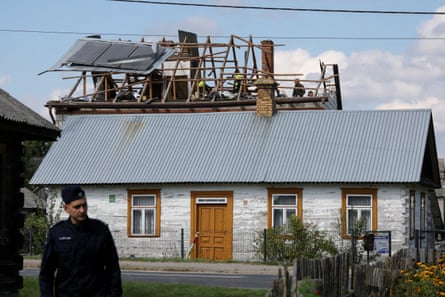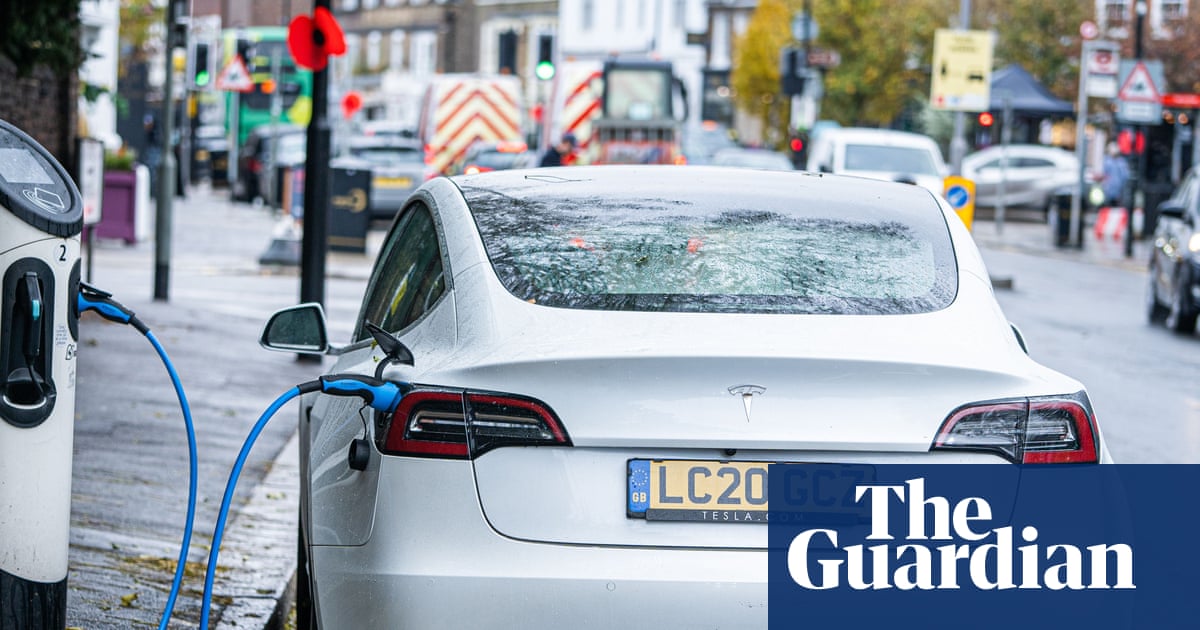Poland’s foreign minister has accused Russia of a “tactically stupid and counterproductive” escalation of the war in Ukraine, saying its drone incursion into Poland last month appeared to be deliberate.
Radosław Sikorski, on a visit to London, said all Vladimir Putin had achieved with the incursion was a consolidation of western opinion against him. He also dismissed Russian concerns that supplying US Tomahawk cruise missiles to Ukraine would be unnecessarily provocative.
The move by Russia had involved 21 drones in a seven-hour incursion in early September, forcing the closure of airports in the east and centre of the country. “We think the preponderance of evidence suggests that it was deliberate,” Sikorski said.
“They were launched from a single location, and they were all unarmed. If this was an accidental offshoot of that night’s attack on Ukraine, you would expect the mix of drones to be the same, some armed, some unarmed. All the ones that crossed into Poland were unarmed,” he said.
The drones, understood to be Russian-made Gerbera decoys, were launched from Russia, in an incursion that was “seemingly coordinated with Belarus”, he said. It was, he added, partly a test of Poland and Nato’s air defences, forcing Poland and Nato allies to respond by scrambling fighter jets and other air defences.
Sikorski was speaking before a planned meeting of Nato defence ministers in Brussels, at which the defence of Europe’s eastern flank and supply of drones to Ukraine will be discussed. After the Polish incursion, Nato allies agreed to supply further jets for air policing as part of an operation called Eastern Sentry.
According to a leaked defence paper to be published on Thursday, the European Commission will also call for European drone defences to be “fully functional by the end of 2027” as part of a project previously known as the “drone wall”.
The Polish drone incident is one of several incursions into Nato airspace by Russia in September, with Russian drones also sighted in the Baltic states, Romania and Norway, and potentially elsewhere in Scandinavia.
Sikorski said the incursions were a reminder that Putin believed he was “at war with us” – a situation that he argued dated back in the Russian president’s mind to the 2006 Alexander Litvinenko poisoning and his combative speech at the 2007 Munich Security Conference.
“He’s been at war with us, but we didn’t acknowledge it because it seemed too preposterous and too strange,” Sikorski said. The incursion into Poland was part of a “spectrum of provocations”, he said, including poisonings, sabotage and arson attacks, such as incendiary bombs at parcel sites in Poland, Germany and the UK.

Though Putin was “probing”, Sikorski said, the incursions and other hybrid threats had been “tactically stupid and counterproductive for him. What is he achieving? He is achieving the consolidation of public support for a policy of deterrence against Russia.”
Donald Trump is expected to discuss whether to supply Ukraine with US Tomahawks, which have a range of more than 1,000 miles, in a meeting with Volodymyr Zelenskyy at the White House on Friday. The Kremlin spokesperson Dmitry Peskov said on Sunday that the issue was of “extreme concern” to Russia.
But Sikorski said concerns about the conflict spreading were exaggerated. “Every time we intended to give Ukraine new missiles, new types of weapons, somebody said, ‘Don’t do it, it’s escalatory. Don’t send them tanks. Don’t send them MiG fighters. Don’t send them F-16s. Don’t give them Himars [rockets] don’t give them Atacms [missiles].’ And every time Russia has had to adjust.”
The Tomahawks, Sikorski said, could be used to target Russian oil refineries, the subject of recent Ukrainian drone strikes. “Russia’s vastness means that you don’t have enough anti-aircraft assets to protect all the targets,” he said, noting Ukraine was having success in reducing Russia’s capacity to produce oil. “When you achieve success you should reinforce it.”
Sikorski said that Viktor Orbán, Hungary’s prime minister, had been “whispering into Trump’s ear that Russia always wins”. However, the Polish minister said that Russia had been defeated in Crimea in the 19th century, in the 1904-1905 Russo-Japanese war, in the first world war, against Poland in 1920 and more recently in Afghanistan.
“Only when Russia loses a war are there any reforms,” Sikorski said. “If Russia lost the war it would be good for Ukraine, it would be good for Europe, but it would also be good for Russia.”
The Polish minister was in the UK for routine meetings, including with Yvette Cooper, the foreign secretary, and Jonathan Powell, Keir Starmer’s national security adviser. He also visited parliament, where he helped unveil a decommissioned Shahed-136 drone.
The drone wall idea, proposed by the EU executive, envisaged a system of “anti-drone capabilities for detection, tracking, and neutralisation, as well as capabilities to hit ground targets leveraging drone technology for precision strikes” according to a draft defence roadmap seen by the Guardian.
However, EU sources said the name “drone wall” would be dropped to help the initiative win broader support. EU leaders will be asked to endorse the defence roadmap at a Brussels summit on 23 October as part of a drive to ensure the continent can defend itself from foreign invasion by 2030.
The idea originated in the Baltic states, but has met scepticism farther west. The French president, Emmanuel Macron, said something “a little more sophisticated and complex was needed”. In Germany, where the word “wall” has an unhappy historical resonance, senior politicians have cast doubt on the idea, while endorsing drone defence.
To help win broader geographical support, EU officials argue drone defences could help protecting borders and infrastructure, combating organised crime.

.png) 1 month ago
45
1 month ago
45

















































